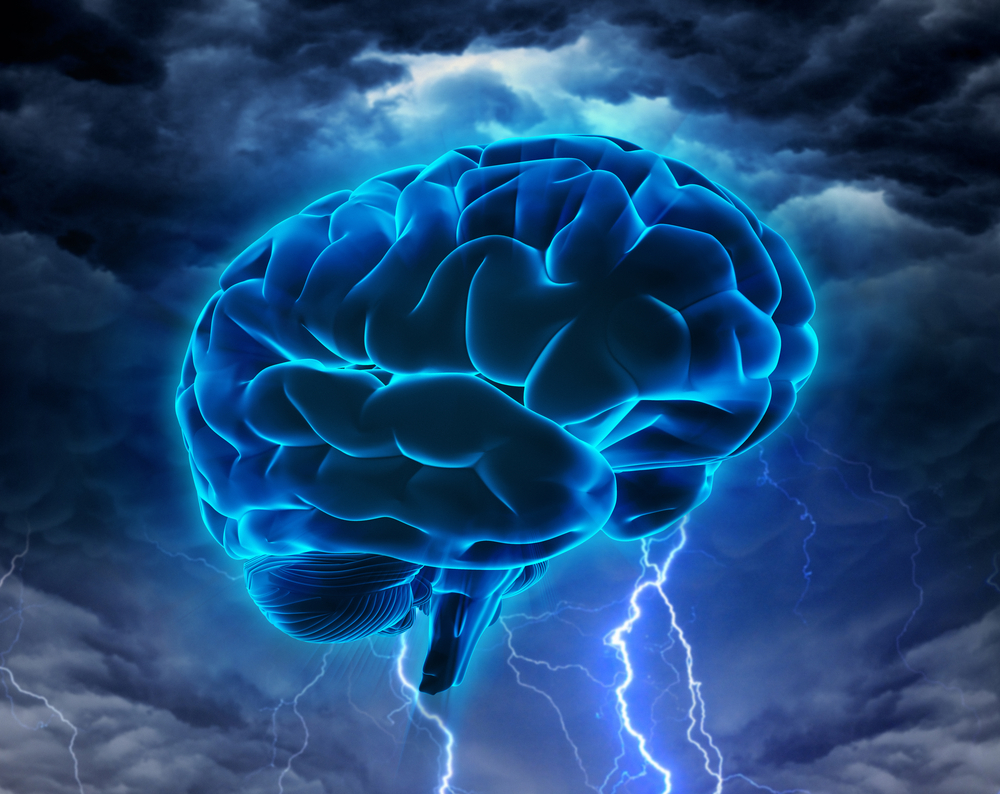There is absolutely no doubt: Playing a musical instrument, listening to music or even singing have enormous positive effects on one’s life and cognitive development.
In this article I would like to show you 15 presentations from TED conferences discussing clear evidence of the incredible effects of music in our brains.
For example, ways in which our brains deal with creativity and improvisation. Also, how music can affect our emotions and improve our cognitive performances. Finally, we will be able to understand how our brains function interpreting music and how music can be used for medical therapy.
I honestly find these topics extremely fascinating and feel deeply inspired. And hope you do too.
So TURN IT UP and ENJOY!
Music and Neuroscience
1. Ardon Shorr: Unlocking music with neuroscience
- Main Topic: Music and Information Processing
- Description: Ardon Shorr graduated from Oberlin College majoring in neuroscience and music theory, then taught fencing in Manhattan. He is currently pursuing a Ph.D. in biology at Carnegie Mellon with a research fellowship from the National Science Foundation.
2. John Iversen: Does Music Change a Child’s Brain?
- Main Topic: Music and Neuroplasticity
- Description: Music is a central part of life for many of us, whether we listen, dance or play. It can shape our mood or transport our imagination, but what is going on in our brain? Can music be used to help an ailing brain, or boost a learning one? The UCSD SIMPHONY project, in collaboration with the San Diego Youth Symphony, is attempting to answer these questions by studying if music training has an impact on the development of children’s brains and other key skills.
3. Jessica Grahn: Music and the Brain
- Main Topic: Music and Cognitive Performance
- Description: Jessica Grahn, Cognitive Neuroscientist, talks about the power of the human mind and how it can be transformed through music.
4. Jessica Grahn: Music on the Brain
- Main Topic: Human Response to Rhythm
- Description: A neuroscientist with music on the brain. Literally. Can music change the way we move? Jessica Grahn is a cognitive neuroscientist who chases the musical mysteries of the mind. For her, music and the brain inspire her to ask how and why does music make us move? How does music influence different types of movement, and how could we optimize this effect to help patients with neurological disorders?Jessica, a musician herself, is curious about why humans have developed a musical culture (and why monkeys haven’t) and how does musical or rhythmic ability relate to movement and language ability. This Assistant Professor at the Brain and Mind Institute and the Department of Psychology at the University of Western Ontario is using her neuro-musical insights to explore the age-old mystery of why some people can ‘feel the beat’, while others have two left feet.
5. Jesse Boere: Your Brain On Music
- Main Topic: Neurostimulation Through Music
- Description: Should our educators pay more attention to music? Yes, they should, says Jesse Boere. He will give you a glimpse into your brain on music and inspire you to support sustainable and quality music education in our schools. Could music be the key to enriching our knowledge economy?
6. Jarrod Haning: The surprising power of your brain on music
- Main Topic: Neuro Interpretation of Music
- Description: Jarrod Haning is the principal violist for the South Carolina Philharmonic. He has been called the “Seth Godin of music” and the “golden boy for music.” And, with performing experience in 14 professional orchestras and over 20,000 hours of practice he is able to deliver some powerful secrets on mental and physical performance.As an award-winning speaker, Jarrod trains companies in the psychology of music. When you know how music creates inspiration in you, then you are able to create inspiration in other people. By revealing the subconscious mechanism that drives our emotional response to music and language, he is able to engage his audience at a much deeper level.His training gives leaders the ability to create the kinds of emotions that cause people to take action. His training gives managers the ability to disappear the emotional tension around conflict and change. HIs training gives teams the ability to increase productivity by working together more closely.
7. Anita Collins: How playing an instrument benefits your brain
- Main Topic: Neuro Activities Through Music
- Description: When you listen to music, multiple areas of your brain become engaged and active. But when you actually play an instrument, that activity becomes more like a full-body brain workout. What’s going on? Anita Collins explains the fireworks that go off in musicians’ brains when they play, and examines some of the long-term positive effects of this mental workout.
8. Anita Collins: What if every child had access to music education from birth?
- Main Topic: Music and Brain Development
- Description: This talk was given at a local TEDx event, produced independently of the TED Conferences. Anita Collins shares how learning music influences our brain development, and what this means for musical education.Anita Collins was handed a clarinet at the age of 9, and it changed her life. This single event dictated her future career as a musician, music educator and academic.
9. Indre Viskontas: How music makes me a better neuroscientist
- Main Topic: Neuroscience and Musical Training
- Description: Dr. Viskontas is both a neuroscientist and a soprano , in her talk she is sharing how and why she is pioneering with the application of neuroscience to musical training.
10. Elizabeth Hellmuth Margulis: Why we love repetition in music
- Main Topic: The Mere Exposure Effect
- Description: How many times does the chorus repeat in your favorite song? How many times have you listened to that chorus? Repetition in music isn’t just a feature of Western pop songs, either; it’s a global phenomenon. Why? Elizabeth Hellmuth Margulis walks us through the basic principles of the ‘exposure effect,’ detailing how repetition invites us into music as active participants, rather than passive listeners.
11. Hauke Egermann: Emotional responses to music
- Main Topic: Emotional Response to Music
- Description: Have you ever wondered why music can have such a profound impact on your mood? How one song can move you to tears in 2 minutes flat and another can make you smile? Well, Dr. Egermann was wondering the same thing and thanks to two distinct but complementary research projects he will have some insights to share with us about the connection between music and our most profound emotions.
12. Charles Limb: Your brain on improv
- Main Topic: Creativity
- Description: Musician and researcher Charles Limb wondered how the brain works during musical improvisation — so he put jazz musicians and rappers in an fMRI to find out. What he and his team found has deep implications for our understanding of creativity of all kinds. (Filmed at TEDxMidAtlantic.)
13. Deepa Rajan: Harmonizing The Brain: Music and Alzheimer’s Disease
- Main Topic: Music Therapy
- Description: Alzheimer’s disease is a tragic neurodegenerative disorder that steals away the building blocks of people’s lives: memory and cognition. However, people with this disease often viscerally remember parts their lives when they are guided by the live soundtrack to years of past personal experiences. This talk specifies the types of music involved in improving different aspects of cognition in people with Alzheimer’s, and the application of such music by an organization called Harmonies for the Elderly. This poignant discussion of Alzheimer’s disease reveals how music is a window into the beauty, fragility, and resilience of the human brain.
14. Beatriz Ilari: Music & the Young Brain
- Main Topic: Music Learning and Development
- Description: Beatriz Ilari is Assistant Professor of Music Education at the University of Southern California (USC), in Los Angeles, where she teaches graduate courses in music education and music psychology. She holds degrees from the University of São Paulo, Brazil (B.A.), Montclair State University, USA (M.A. — violin) and McGill University, Canada (PhD). Dr. Ilari uses a variety of approaches to study musical development and growth of infants, children and adolescents. She has conducted research with babies and children from different parts of the world including the U.S., Brazil, Canada, Japan, and Mexico. Her research appears in many important journals including Arts Education Policy Review, Journal of Research in Music Education, International Journal of Music Education, Update, and Early Child Development and Care, among others. She is currently co-editor of the International Journal of Music Education — Research, and has just initiated an exciting interdisciplinary project on children’s music learning and brain development with researchers from USC’s Brain and Creativity Institute.
15. Tania de Jong: How singing together changes the brain
- Main Topic: Singing and Emotional Response
- Description: Tania de Jong AM makes the case that people singing together can change the brain. Pushing the idea that creativity is the strategic tool of the 21st century, she says how our voices have been silenced and that it’s not doing us any good. She explains how singing is a survival mechanism, how it makes our hearts beat together and can help heal strokes and depression.
More on Neuroscience…
In case you are enjoying the topic and want to learn more, I have included two other presentations purely on neuroscience that adds very well to the previous discussion.
16. Max Cynader: Enhancing the plasticity of the brain
- Main Topics: Neuroplasticity
- Description: Dr. Cynader was born in Berlin, Germany in 1947 and obtained his B.Sc. at McGill University in 1967, and his Ph.D. from the Massachusetts Institute of Technology in 1972. Following postdoctoral training at the Max Planck Institute, Dr. Cynader held positions at Dalhousie University in Halifax, and in 1979 was awarded the E.W.R. Steacie Fellowship of the Natural Sciences and Engineering Research Council as one of Canada’s outstanding young scientists. He attained the rank of Professor of Psychology in 1981 and Professor of Physiology in 1984, and held the position of Killam Research Professor from 1984 to 1988. On arriving at UBC in 1988, Dr. Cynader headed the Ophthalmology Research Group at UBC until 1998, at which time he was appointed Founding Director of the Brain Research Centre.
17. Daniel Amen: The most important lesson from 83,000 brain scans
- Main Topic: Neuroimaging
Final Thoughts
CONGRATULATIONS for making it this far! I truly hope you have enjoyed the presentations and learned as much as I did from them.
So after listening to them all, there is one conclusion: Try to consume as much music as possible. Learn an instrument or simply sing!
And Remember: Neurons that fire together, wire together!





